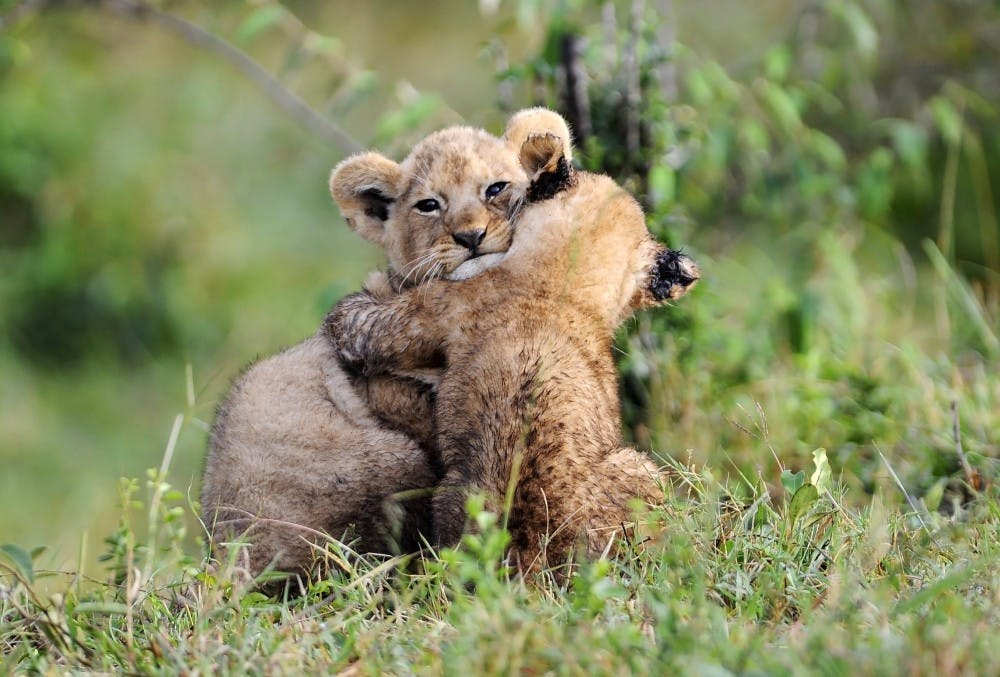
Understandably, these silent reassurances can’t come from just anyone. A quasi-mandatory parting hug to an acquaintance after a small party does not strike quite the same chord as the leap of emotion into your parents’ arms after a long time apart.
The latter’s significance stems from its sincerity, its complete collapse of comparison. While you may be very careful and precise in how you embrace a stranger at the end of a night, you forsake inhibition entirely when tucked into the warmth of your father’s chest, when cradled by your mother’s delicate arms. In that moment you are you, uncut and unedited, immersed in the company of those who wouldn’t want you to be anything else.
For many of us, the buck does not stop with our families. We may have a close friend or significant other who provides us with the same silent solace. We could even have several, each one lending a shoulder to a different part of us.
Regardless, it’s quite tragic to imagine not having those people, even more tragic to know that many people don’t and most tragic to realize how many barriers stand in the way of welcoming those people into our lives. The pervasiveness of judgment and nature of destructive competition inject these barriers into our lives.
Even as I write this article, I semi-consciously contemplate how others will view it, how I will be perceived and the fallout of such judgments. Contrary to the message I espouse, I play this game. After all, we are wired in this way to win, to predict potential outcomes and bring about the most favorable one. Our skill in playing this game got us into Hopkins and will no doubt continue to get us far in the future. However, the second-by-second commitment to over-analysis that this game necessitates generates great mental and emotional gridlock. In short, we hesitate to do things we want to do. We battle ourselves. We tap the iced-over lake with our foot before taking a step.
For instance, when our most basic instincts tell us to hug someone, our adapted state of mind intercepts the messages and runs the option through a series of tests. Will I be construed as weird afterwards? Does my relationship with the person warrant it? Does hugging the person compromise the reputation I’ve built with the people around me? Even if we follow through with it and the hug is well-received, these thoughts continue to race throughout the experience. The anxiety of the operation makes the hug, which you desired in the first place, unenjoyable. Our human nature is overridden and then devalued.
This game controls not just our decision to hug, but all of our decisions. We reduce ourselves from living, ever-evolving manifestations of instinct and emotion to utility-maximizing computers that only move forward and value individual moments in terms of seconds. Though this automated method may save us from falling through the ice sometimes, it deprives us of the times that we don’t. It deprives us of the glorious moments that exist not as steps to trace a larger goal from, but purely as themselves. It deprives us of the stories that our parents tell us after the hug.
When two people can circumvent or ignore this game in interaction with each other, great relationships are born. They forsake worry, doubt and anxiety. They forget the impulse to judge. They are human, rather than societal; and as a result, each party revels in the unfamiliar freedom to do exactly what they want without consequence. Neither person fears shame in sharing sadness or disdain in praising happiness. In this world, you are your own canvas to paint and no color is off limits.
Hopkins can be that world. If each and every person on this campus fervently fought against the game and rose above the need to judge, love would engulf our very school spirit. Bad days would become deep conversations and good days would trickle down to all those who weren’t so lucky. The peculiar loneliness that college intermittently guarantees would evaporate into an all-encompassing nest of mutual support and warmth — some would even say, a hug.
So in this upcoming week, think back to Family Weekend. Each time you interact with one of your classmates, revive the emotion that swelled in your heart upon your very first reunion with your parents. Visualize the smile that soared upon their faces, their arms outstretched in your direction. Feel back to the crescendo of happiness that roared upon your body increasingly as you drew closer to them.
Remember what it felt like to belong, to be home, to be you.
Finally, channel that sensation — that rush of power and positivity — into making Hopkins a more human place. In the end, you may find yourself surrounded by your best friends. You may begin to realize how fortunate you truly are.















